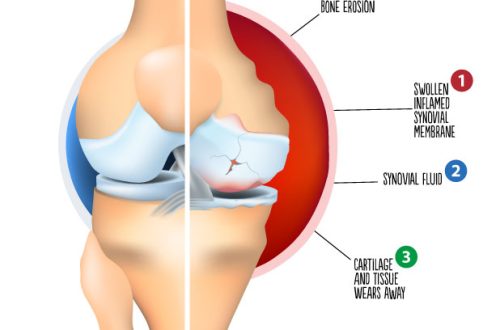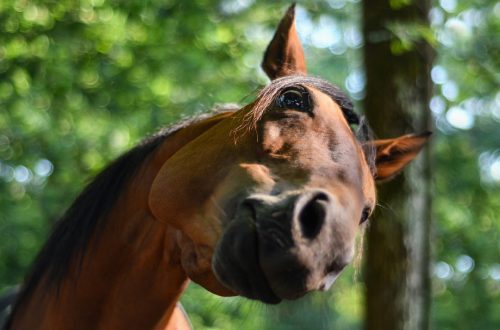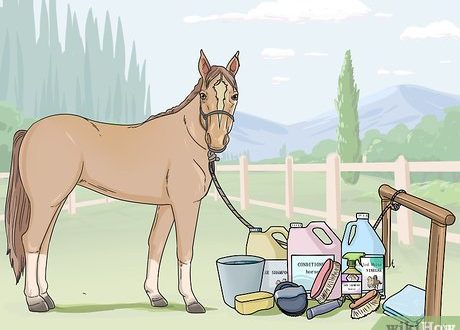
Pre-launch fever: how to deal with anxiety and turn it into an advantage
If you don’t know how to deal with stress, it can derail your presentation.
First of all, let’s understand what stress is.
There are people who are more susceptible to it than others. They are thrown into a cold sweat in situations that leave others indifferent. Psychologists call this quality personal anxiety. It is a semi-permanent trait of the individual, and not something he may encounter only from time to time.
But this is only one side of the character of such people. Another of their features is a highly developed “radar” that works on everything that could potentially go wrong. And by the way, if you think that you are prone to anxiety to some extent, do not despair. Let you hardly ever stop worrying about everything (which is not at all necessary, because such a character trait can bring benefit), but you will be able to learn effectively manage your level of anxiety.
However, if you consider yourself to be very cold-blooded, you still can’t help but get into situations that will make you break out in a cold sweat. Psychologists define your feelings as “situational anxiety”. This condition is temporary and can last from a few minutes to several days. Going to a tournament, especially if it’s your debut, is one of the situations that predisposes you to stress. Remember that even if something makes you nervous, “nerves” can be useful. The main thing is to learn how to deal with them.
Psychologists also distinguish between cognitive and somatic anxiety.
cognitive anxiety manifests itself exclusively in our thoughts. Anxiety, doubt, uncertainty, insecurity overcome us in stressful situations or in cases where we are under pressure. All these worries that we can “spoil” the horse, perform worse than expected, not please the judges or disappoint the coach …
Somatic anxiety is characterized by an immediate physical response to anxiety, and as a result, the burden on your body can be quite significant. When people are stressed (worried or worried), they breathe faster. Inhalations and exhalations are shallow, the chest rises. The number of heartbeats increases, the muscles also begin to contract. From an evolutionary point of view, all these physiological responses are not meaningless.
When our ancient ancestors became stressed by a life-threatening situation (for example, an encounter with a lion or other predator), the body prepared itself for fight or flight. Rapid breathing contributes to a better saturation of the muscles of the body with oxygen. Once in the muscles, oxygen combined
with glucose it turns into adenosine triphosphate (ATP) – the energy “currency” of the body. Add a small dose of your own legal adrenaline (it gives you wings behind your back) and cortisol (it helps adrenaline, among other things), and your body will be ready to do everything to survive.
The fact is that our body does not always understand whether the threat is real (a lion, a car rushing at you, a robber in the house) or not. By and large, failure in competitions is not the end of the world at all, but under the influence of the moment it is perceived that way. And so, the body gives the appropriate reaction. Why?
He is trying to protect your ego! A threat to the ego (for example, the risk of damaging one’s professional reputation) can be taken as seriously by the organism as the threat of falling and injury. This is especially true for those who identify themselves in terms of victory or lack of defeat (for ego-oriented people – see chapter 2 of the book Order in Mind – Order in Driving). As a result, the risk of failing or performing poorly can cause extreme stress.
Thus, whether the stress is real (physical threat) or not (ego threat), whether the lion is real or imaginary, the body will react in the same way. As a result, the rider will feel a loss of control.
over the situation both physically and psychologically. Loss of control is always unpleasant, but in equestrian sports it can be fatal.
Cause?
Horses are unusually sensitive animals with a heightened flight response. They first run away, and only then … although no, and then they do not ask questions. Moreover, we train horses using the principles of learning theory. After many repetitions, they finally begin to associate certain signals (messages) with movement. Put your foot on the side of the horse, press it with some effort, and the horse will go forward (at least we expect him to). Move your leg back a little, press down with some effort, and the horse will take a few steps to the side. Then close your hands, sit higher and your horse will slow down.
Either way, the described physical responses to stressor 3 should not be a problem. Adrenaline is an energy drink for the body, which it itself produces. It energizes a person, speeding up reactions and improving the ability to concentrate. Increased breathing and heart rate bring in oxygen while cortisol floods the body with glucose.
What is the result? More fuel for muscle work. The moment when fatigue makes itself felt is postponed. Higher levels of concentration (remember, when you focus, you also need glucose!). So, it turns out that stress can also be beneficial. It will help improve your productivity!
Meaning of Interpretation
The problem is how you interpret this whole experience. Instead of just treating stress as something destabilizing, try looking at it from a different angle. Think of it as a beneficial feeling, as something that makes you more alert and focused, allows you to better cope with difficulties and tasks.
____________________
Nick Burton considers anxiety an integral part of the “game”, but such a part that should be perceived as something useful. And he knows what he’s talking about. Nick has competed in CIC4* Eventing and competed in the Grand Prix program at national level tournaments. Today he is a dressage coach of the World Class Development Program and is on the list of the best dressage judges (judging at the 2012 Olympics, at the European Eventing Championships in Lumühlen and at many high-level tournaments). When I asked him to share his personal experience, this is what he said:
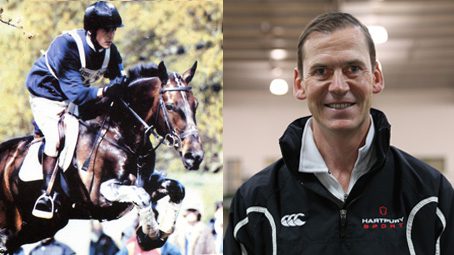
“Anxiety, anxiety are inextricably linked with the process of preparing for the tournament. If there is no anxiety, I cannot say that I am ready. If you don’t get a little nervous, if you don’t feel the presence of the notorious “butterflies in your stomach”, then you are not ready for the performance. If you’re just walking, or just trotting, or doing something yet, without experiencing these emotions, you will not be able to truly compete, you will not be able to give everything 100%. Therefore, I am convinced that anxiety is the most important component of tournament life. But you have to know how to use it for good. You need to think: “I feel competitive”, but not “I’m so nervous, I won’t be able to perform well.” You are not at a regular home workout. You are at competitions, and they are impossible without anxiety. I know that if I’m worried, it means I’m ready to compete, ready to show my best side. If I’m not interested, focused, nervous, I don’t do what allows me to be the best. I worry more about the absence of anxiety than about its presence. So I’m waiting for this feeling. It lets me know if I’m ready.”
___________________________________________________________
Perhaps the difference between anxiety and excitement is still not obvious to you (at least in terms of physical manifestations). In fact, she doesn’t exist. Difference in perception or direction of arousal. Arousal is generally viewed as something positive, while most of us read anxiety as something negative, although the “symptoms” in both cases are almost the same.
Interesting, isn’t it? The most important part of dealing with arousal (whether anxiety or excitement) is to learn to interpret it as something useful, something that will help you compete, and not something that will lead you to failure. Many athletes use the feeling of anxiety, believing that it helps them concentrate, react faster, work at least 10% harder, and be prepared for any eventuality. Some prefer not to use the word “anxiety” and refer to their feelings as excitement, arousal, pre-launch jitters, etc. This makes it easier to take them positively.
So how do you turn anxiety into beneficial emotions? How to learn to interpret “butterflies in the stomach” as a signal “ready to act”, and not “need to run and hide”?
How to turn “fear” into “challenge”?
Let’s start with theoretical reasoning and then Let’s turn to practice.
We usually experience stress when:
— we are not sure that we have the necessary skills;
— not sure if we can meet the expectations of others;
– we evaluate the expected result of our actions as very important.
All these powerful factors of influence, if treated incorrectly, can make even the most self-possessed person nervous. Let’s try to understand how tournament experience can be used to interpret all the “terrible” circumstances in a positive way.
Answer a few questions.
1. Do you think you have the necessary capabilities?
It is about how you evaluate the suitability of your capabilities to the requirements of the situation. We emphasize that what is important here is exactly what YOUR assessment is. After all, the main thing is not only to be able to work at a certain level, but also to believe in your capabilities and abilities.
So, if you are not sure that you really have any skills you need, try to write them down on a piece of paper. What requirements, in your opinion, must be met in order to successfully compete in the tournament? Make a list. Write down what you already know and what you don’t. Analyze previous competitions and home workouts. Can you tick most of the boxes? Yes? This means that you have the skills needed to compete in a tournament, and you can view the competition not as a threat, but as a challenge that you are eager to take on…
2. Whose expectations are we talking about?
Consider (and be honest with yourself!) who you are trying to impress. For yourself or for someone else? I would like to bring you back to the topic of the concepts of ego and task orientation (see Chapter 2). If your main goal is to earn the admiration of others or surpass all rivals, then you will inevitably find yourself in a dead end. You will face a situation that you cannot control, because you cannot influence other people’s thoughts, their behavior or actions in a given situation. Lack of control will torment
you, because deep down you will know that you cannot influence the situation.
Focus on what you expect from yourself. Not from others. Set goals that you can control (more in chapter 7 of the book). Focus on your performance, on how you ride. Your way out! Enjoy!
3. What does all this mean to you?
If you are actively involved in tournaments, they certainly matter to you. If you didn’t, you wouldn’t worry or worry. However, it is important to understand exactly how you feel about competition. One tournament is just one tournament. And if you attach to some one-time event unnecessarily important, you end up putting yourself under unnecessary pressure.
___________________________________
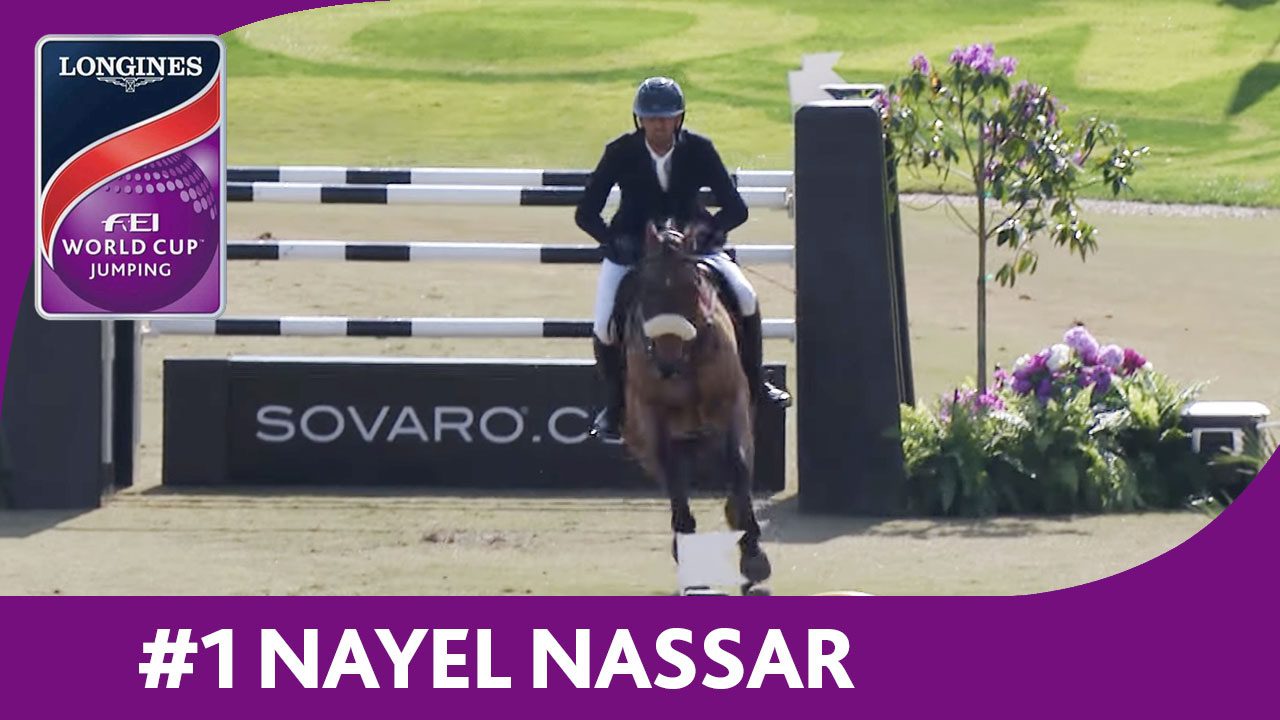
Niall Nassar was in his early twenties when he became one of the top ranked Egyptian show jumpers. Even then, he had behind him participation in two World Cup Finals. When Niall was asked about how he copes with the burden of representing his country at the international level, he replied:
“If you feel like a tournament is putting pressure on you, try to see the big picture. Even if you compete in the Olympics, what you do should not be different from what you have been used to doing for many years – whether in tournaments or at home training. All you need is to ride a horse. nothing more».
______________________________________________________
Therefore, your anxiety is just a way that your body sends you a signal that it is ready for a “fight”. So go ahead, keep it up!
3. Relax… Gradually!
Sometimes we don’t even realize how tense our body is. This is because we get used to this tension. People are amazing creatures, they are unusually quick to acceptfeel discomfort and come to terms with it, especially if it seems that this discomfort does not harm them. But the tension thata swarm seems insignificant, in fact it has the most important importance when it comes to equestrian sports.Ability to effectively ride a horse directly depends on the so-called fine control. exercising horse, you are trying to teach him to react to subtle the softest signals. They pressed the leg a couple of centimeters from his usual position, and you are already asking for movement to the sideWell, not ahead. A slightly larger brush opening asks for a twist, not about bending. Unlike running, cycling, swimmingrowing, rowing (sports where most of the work is donelarge muscle groups), in equestrian sports we operate accurather, small groups of muscles. But the more in your body of tension, the more difficult fine coordination is given, andcheat, and the horse starts to react differently. Think about it. A horse receiving signals in a tournament other than those you served her at home workouts, it will be confused and nervenothing. Tense muscles will not be able to provide the usual interaction, the more subtle.
To deal with this problem, you first need to acknowledge its existence. And then progressive will help you muscle relaxation. This method, developed by the Americanby the ski doctor Edmund Jacobson in the early 1920s, helps to recognize the tension in each individual groupne muscles and control it.
Start by lying on your back with your arms and legs extended. Pricetrain yourself by focusing on your breath. Then work with each muscle group in turn. Start with your feet. Strain muscles, as far as you can, hold this tension andwait until ten. Then release the tension and feel how muscles relax. Enjoy the feeling of relaxation counting to ten. Then focus on the shins. Repeat an exercise. First tension, then relaxation. Then thighs, buttocks, back, abdomen, upper arms, lower hands, palms; finish by relaxing the muscles of the neck and face. As a resultthen you will feel relaxation in your whole body. Moreover, youtake the first step towards realizing what it is like to be very tense and very relaxed. Regular practice will make you a real specialist, and you no longer need tense your muscles – you can progressively relax thembeat. At this stage, it will be possible to enter a trigger word, for examplemeasures, “cool down” or “quietly.” People, like horses, well establish connections, but we will discuss this later. It callsXia classic conditioning (remember Pavlov’s dog and bell!). Say the trigger word before relaxingXia, and soon the very word will make you relax!
But don’t forget to start with breathing exercises. They will prepare you both physically and mentally. After a while, you will be able to mergemuscle groups, and in the end the “whole body check” will take you a few seconds.
Assembling the puzzle
Imagine that you are in a tournament. Do you feel like your arousal level rises. What will you do?
In fact, everything is simple!
1. Listen to your body!
What does it tell you? What you feel is justa sign of your readiness for battle? The body and mind have reached the “necessarydim degree”? Or are you really uncomfortable and you think you’re in a critical situation?
2. Consider the Big Picture
Remind yourself that your skills are up to the mark tournament, think about your personal goals and what you will have and other tournaments.
3. Get centered
The knees are relaxed, the shoulders are relaxed. Direct your downa craving inward towards one’s center and…
4. Breathe!
Breathe deeply as described above. Rebreathingloads your body and mind. Any unproductive thoughts will replace thoughts that you need to direct the air “in the stomach.”
5. Relax
Use a trigger word to relieve stress in any part of the body or throughout the body.
6. Immerse yourself in prelaunch life
The pre-launch routine is associated with ordinary orderly actions and thoughts that traditionally precede your performance. Performing habitual actions in habitualsequence, you subconsciously associate preworthwhile performance with the ordinary. you stop thinking and start doing (in fact, thus forming a habitku. We will talk about this in Chapter 12). If you decide to usecall this method constantly, your body will eventually learn “recognize” the entire sequence and perform the necessary actions are correct. This, in turn, will positively influence to your performances.
By being aware of what is happening to you, you will learn experience a certain sense of security. What do you needfights to form his own routine followeraction? Appropriate trigger and some short behaviors performed in the same order. Not make things harder for yourself. Before entering the battlefield, you canYou can follow a simple relaxation routine that includes:
- your trigger (e.g. the word “relax”) and then doing a series of actions like
- deep breathing,
- accompanied by a shift in attention to stomach (centering),
You can also use a specific gesture or word to start your “routine mechanism”:
● a nod of the head to inform (oneself) of readiness;
● breathing;
● centering;
● use of a trigger word;
● horse signal.
Come up with a few different trigger words totell yourself what you should focus on, or visualizemake a calm exit to the battlefield or exit from the stall.
More about this in other chapters of the book “Order in the Mind — driving order. Sports psychology for the success of the rider “
Wake yourself up
Moments like this don’t happen often, but sometimes you might need toBe afraid to excite yourself, not to calm down. Perhaps you are teachingplayed in so many tournaments that they began to notice a certainsecond indifference to what is happening. What to do?
1. Listen to your favorite music
It makes sense if the melody sets you up for positive and undertakes on a fighting spirit. Music evokes certain emotions. Use them. Create your own motivational playlist, such that every emotion turns you on, nourishes energy, called to dance to the beat.
2. Recreate physiological symptoms…
… but not while on horseback. Do you remember that even a little stress causes your body to react increased heart rate and faster breathing? If a you can’t get the excitement you need in a tournament, aboutstimulate him. Run a little (for example, around a horsecart). Jump in place as high as possible, “beat” the air, clap your hands, etc. This will help you awaken the energygyu in the body, which in turn will greatly increase excitation.
3. Talk to yourself
The power of words should not be underestimated. Remember what feelings you are embraced when the audience gives you a standing ovation. Or when your coach says to you: “Hey, well done! Good! Forward!”. Pravilno! Lethargy and despondency go away, leaving a place for motivation.
Don’t know what to say to yourself? What would you say to someone elsemu to support him? Feel free to talk to yourself!
4. Remember the prelaunch life!
Routine helps to calm down. But she can also inspire. To you this will require changes in habitual activities. You you can start with an “activating” gesture and then change the layerin-trigger (but I would not advise removing breathing exercisesdenial and “centering”, as they are directed to the first queue to help you relax, but not to relaxsation!). So you can do the following:
● raise your thumbs up (you won’t evengoing to lose contact with the horse to make it’s just raise your thumbs for a couple of seconds);
● breathe;
● center;
● Say a trigger word that evokes a positive positive mood and confidence, for example, “Forward!”;
● give the horse a call to move.
All this is really not difficult! And try to bear the main thing from these lines: the prelaunch excitement, of course, is not is the evil it is commonly thought to be. And if you teachYou can interpret the physical signs of arousal as your body’s way of letting you know you’re ready to fight is excitement will be your best friend.
Solving Problems
You must not make any distinction in your work whether you perform you are at a tournament or training at home. This approach is correct for any sport. You must be sure that the tourYou won’t run into something you wouldn’t have done before. Remember one of the causes of anxiety is the thought that you are not rightcurl. So don’t forget to practice at home. If your the horse is afraid of flowerpots, work on this at home, let her get used to them. If you know what your horse can “play along” in the open arena, work regularlythose of her on the street. Don’t try your luck in the tournament – it can turn your back on you.
Nick Burton tells us this:
“Things can go wrong at any moment in a tournament. This is sorevinnovations. I always expect such situations, rather than being surprised by them. How do I deal with them? I’m just always ready for the challenge, ready do something in return. I prefer to act rather than ask questions or complain about fate. Expect a surprisePS, so that later you don’t ask why you encountered them. ”
Good position, right?
The main thing is to prepare as much as possible. But there are situations when your excitement is so great that the level of preparation no longer important. Moreover, you are scared. When we worry a lot, we tend to lose our way.ability to see the big picture. Suddenly out of the brave lion prewe turn into a frightened hare. There’s nothing we can do and sometimes we come to the conclusion that the best solution is simple leave home. My advice is don’t do it! Take a step back.
First, try looking at the situation from the outside. How would someone else rate goingwhat’s with you? Would he agree that you can’t do anything do to deal with the situation? What would your friend saywhich friend? Talk to yourself about how you exercised so that go that far. Are you still sure you can’t deal with the problem?
Use your favorite technique to soothe myself. Did you manage to reduce the degree of anxiety at least a little? He closer to the optimal level? Excellent! “Slap” yourself approvingly on the back for this achievement. Now remind yourself that anxiety is just a signal of readiness to enter to battle. Obviously, your body today gives too strong reaction. And you … go to the battlefield and show your pair with a horse from the best side!
An excerpt from the book by Inga Wolfram “Order in the mind – order in driving. Sports psychology for the success of the rider ”



